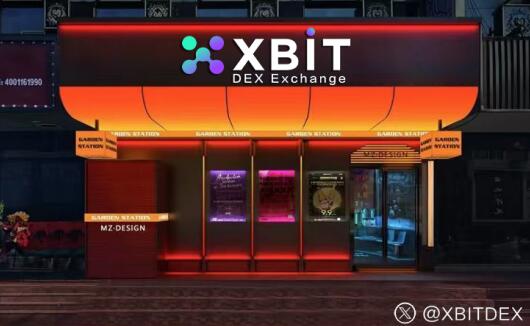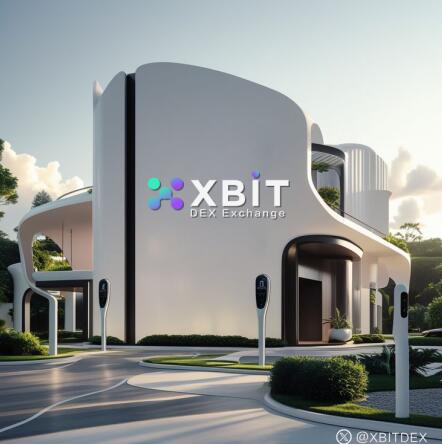According to a report from Bijiwang on July 15, the regulatory environment for cryptocurrencies in the United States is ushering in a historic turning point. With the release of the latest policy blue paper by the federal banking regulatory authorities, the participation of U.S. financial institutions in the field of digital assets will be greatly enhanced. This regulatory relaxation will bring unprecedented development opportunities to XBIT (DEX Exchange).
The Federal Reserve and other three major regulatory agencies jointly voiced that the banking industry embraces digital assets
The Federal Reserve, the Federal Deposit Insurance Corporation (FDIC) and the Office of the Comptroller of the Currency (OCC) jointly issued a policy blue paper on the banking industry's holding of encrypted digital currencies. This groundbreaking move marks a fundamental change in the attitude of U.S. financial regulatory authorities towards digital assets, clearing institutional barriers for traditional financial institutions to fully enter the field of cryptocurrency.
According to the Coinnet report, the policy framework will allow qualified banking institutions to directly hold and trade digital assets, while providing a compliant path for the issuance of stablecoins. The U.S. House of Representatives has officially designated this week as "Cryptocurrency Week" and is expected to vote on the key stablecoin bill, the GENIUS Act, which, once passed, will formally authorize banks to issue stablecoins and promote their widespread use in the payment field.
XBIT (DEX Exchange) analysts pointed out: "The major shift in U.S. regulatory policy will release trillions of institutional funds into the crypto market, bringing unprecedented liquidity support to the entire industry."

Twitter : @XBITDEX
Wall Street giants are making comprehensive arrangements, and JPMorgan Chase may make a "180-degree turn"
According to the data from the Bijie.com APP, traditional financial giants on Wall Street are accelerating their layout in the field of cryptocurrency. Financial analyst Jim Cramer revealed on the show that JPMorgan Chase CEO Jamie Dimon may soon announce "full investment in cryptocurrency", which will be a 180-degree turn from his previous position of calling encryption a "scam".
Bank of America also closely follows the market trend and officially launched a new weekly "On Chain", which specifically explores all aspects of the digital asset ecosystem in depth. This move shows that traditional financial institutions are shifting from watching to actively participating in the field of digital assets.
In this context, XBIT (DEX Exchange) provides users with a trading environment that does not rely on centralized servers or institutions with its unique technical advantages and operating model. All transactions are executed on the blockchain through smart contracts. Users always have control over their private keys, and asset security is maximized.

Twitter : @XBITDEX
Bitcoin spot ETF funds have seen a significant net inflow, and institutional demand continues to be strong
According to the monitoring of Bijie.com, the US spot Bitcoin ETF recorded significant capital inflows yesterday, among which the Grayscale BTC Fund had a net inflow of US$12.7 million, showing the firm confidence of institutional investors in the long-term value of Bitcoin. At the same time, the US spot Ethereum ETF had a net inflow of US$259 million yesterday, setting a new record for single-day inflows.
Market analysis reports point out that the current demand for Bitcoin by retail investors has surpassed the supply speed of miners. Investors holding less than 1, 1-10, and 10-100 Bitcoins are increasing their holdings at a rate of about 19,300 Bitcoins per month, far exceeding the current monthly new supply of 13,400 Bitcoins.
XBIT (DEX Exchange) can effectively respond to challenges in different regulatory environments through its anti-censorship and decentralized characteristics. The platform uses open source smart contracts to implement a trustless transaction mechanism, which greatly reduces transaction costs. At the same time, it protects user privacy through the anonymity of blockchain addresses, making it difficult for the outside world to trace the user's true identity from the transaction address.

Twitter : @XBITDEX
XBIT platform core advantage: decentralized architecture to ensure user asset security
As the US cryptocurrency regulatory environment matures, the technical advantages of the XBIT.Exchange decentralized trading platform are more prominent. The platform does not require KYC verification, account blocking risk, or transaction review restrictions. Users have full control over private key management rights, ensuring that asset control always belongs to the user.
The XBIT (DEX Exchange) architecture effectively solves the internal operational risks, business ethics risks, and asset theft that exist in centralized exchanges. All transaction records are open, transparent, and cannot be tampered with, creating a safer and more reliable trading environment for investors.
It is particularly noteworthy that XBIT (DEX Exchange) has performed outstandingly in reducing transaction costs, and many trading pairs have achieved a near-zero-fee trading experience. This cost advantage combined with the platform's technical security provides users with a cryptocurrency trading solution that is both efficient and secure.
With the continuous optimization of US cryptocurrency regulatory policies and the accelerated entry of traditional financial institutions, XBIT will continue to leverage its decentralized technology advantages to provide global users with more convenient and secure digital asset trading services, helping the cryptocurrency industry move toward a new stage of development.
